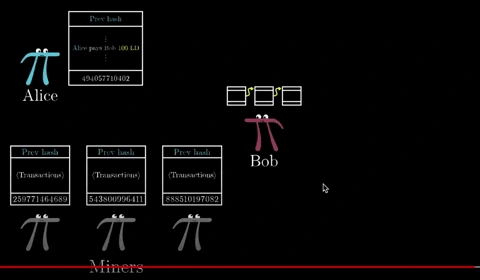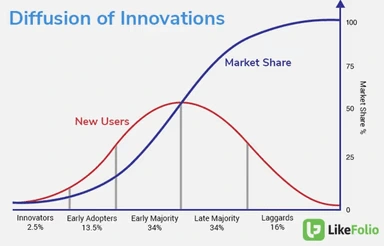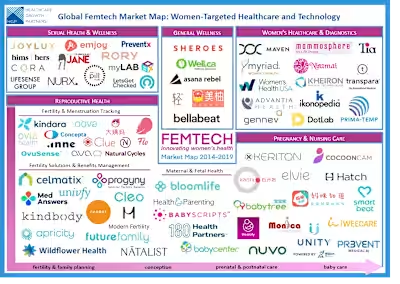A Crypto Black Hole
Table of Contents
Crypto is not an asset class, by Goldman Sachs
On May 27, 2020 Goldman Sachs reportedly said in a presentation that bitcoin is 'not an asset class' nor is it 'a suitable investment'. Their reasons:
Bitcoin does not generate cash flow like bonds or equities.
Bitcoin does not generate any earnings through exposure to global economic growth.
Bitcoin does not provide consistent diversification benefits given its unstable correlations.
Bitcoin does not dampen volatility given historical volatility of 76%. Goldman references when bitcoin fell 37% on March 12.
Bitcoin does not show evidence of hedging against inflation.
They called cryptocurrency the biggest bubble or mania, possibly ever.
One can say that cryptocurrencies have no inherent value, governments will end them eventually, big tech will crush them (Facebook Libra), etc. I wanted to write this so that we can all appreciate crypto (note how I did not say cryptocurrencies, a topic I will get more into later) a bit more, and perhaps have a little bit better of an understanding of this black hole before coming to a sweeping generalization/conclusion.
As a primer, I'd like to start off by listing some facts about crypto:
The cryptocurrencies market is often based purely on speculation and no education which leads to irrational optimism (basically it is overhyped) e.g. Auroracoin
Many of the people invested in the cryptocurrency market are/were scammers, criminals, involved in the black market, Ponzi Schemes, e.g. Silk Road, OneCoin.
It is unlikely that traditional bureaucratic institutions like governments will disappear
Very few people in the industries of finance, technology, government, etc. know what is going on
I am still learning and don't know enough either
Also, there are many b-words. Blockchain, blockchain, Bitcoin, and bitcoin. These words have been used so heavily and carelessly that their true meanings are obfuscated and rendered meaningless. Am I talking about blockchain technology? Am I actually referring to Bitcoin when I say blockchain? Am I referring to the Bitcoin protocol or the bitcoin cryptocurrency? So, in this writing I'm going to try to be as specific as I can to avoid clouding comprehension with unnecessary 'big words'.
Consider the rise of the internet and its current need for rearchitecting
Do you remember (or if you're young like me, have you read about) the meteoric rise of the internet? The internet is one of the best examples of a string of seemingly arcane and incidental decisions about software architecture that unleashed a revolution upon the world, one that became obvious once it distributed more widely into lives.
In the 1980s to the mid 2000s, internet services were built on open protocols. This is when big companies we know of today like Google, Amazon, Facebook, etc all came into existence. They were the ones that leveraged the internet to make it mainstream. From the mid 2000s to our present day, companies (FAANG and more) built softwares that outpaced open protocols. With network effects, these companies quickly captured huge market share and became irreplaceable in our daily lives from our hardware like our devices to the way we communicate.
This is great because now information and communication is pretty much free, for almost everyone. But these massive companies also have developed a monopoly on the space they occupy, depending on how you define their market. And they've established centralized rules that make it very difficult for new entrepreneurs and creators to enter the space. 3rd parties on Amazon watch their margins dwindle as Amazon uses their data to build better and cheaper in house products. Websites have to pay to be a part of Google, cutting into their own livelihoods. Even Berners-Lee, the inventor of the World Wide Web, was concerned about the advertising-based model of social engines. Misinformation is everywhere. And so, now, all we talk about are privacy, security, and regulation concerns.
The next line of thought is to obviously impose more restrictions. Antitrust regulations, more laws, etc. But you can't restrict coded human thought. If Web1 was the genesis of the internet, what consisted of services and products supported by open protocols like HTTP, TCP/IP, etc. Web2 is what we have today, then we should instead look towards Web3. It's unlikely that next generation internet protocols will come out of DARPA like organizations in the future. Internet services and products should consider being completely rearchitected to become crypto open networks.
The birth of open network technology
Moving around money today nearly always requires a third party. There are costs via time and money. It is very inefficient. Recently I was trying to sign my first lease as a real independent adult and was asked to write a check... I really did not think this would be happening in 2020.
To go back a bit, in 1990, David Chaum started Digicash, the first attempt at digital currency. It declared bankruptcy, and in 1996 E-gold also was suspended due to legal issues. They were trying to solve the 'double spend problem', aka the ability to spend the same money more than once (an issue normally corrected with the existence of a third party), but were unsuccessful.
The seminal whitepaper published by Satoshi Nakamoto (o mystery woman/man/group of people) in 2008 launched the movement of Bitcoin, the system, and the cryptocurrency. Nakamoto pitched Bitcoin as a "peer-to-peer electronic-cash system" but what he/she/they really solved was the ability to create a secure database of information, located across thousands of computers, with not only no central authority managing it or verifying it ("distributed ledger"), but also with economic incentives so that those who contributed to the system were rewarded for their efforts in an increasingly scarce way (21 million cap on Bitcoin supply). What was pitched was the same sense of sovereignty that the days of the early internet had originally promised.
Although Nakamoto's system is not perfect, his/hers/their proposal was the face that launched a thousand ships and inspired many others to form their own open networks. For example, the second most well known system is Ethereum, also released via whitepaper by Vitalik Buterin when he was just 19 years old! Like Bitcoin, Ethereum has a cryptocurrency, but what distinguishes it is that it allows users to create applications on top of the Ethereum blockchain technology ("decentralized applications", or dApps") via smart contracts (IF this THEN that). It's a decentralized application to build decentralized applications. So for others to build their dApps, they can use Ethereum instead of trying to start from scratch. To feature some other cryptocurrencies, there's also many hard forks (a hard fork is when a cryptocurrency splits into two due to disagreements between users) from Bitcoin such as Litecoin, Bitcoin Cash, Bitcoin SV, and others such as Decred, Monero, Zcash, Tezos, etc.
An overview of how open network technology works
💡
This might be confusing or too technical to some people, I'd highly suggest you check out 3blue1brown's video: "But How Does Bitcoin Actually Work?" for a more in depth and visual explanation. Or just skip this part if you're not interested in how it actually works!
Blockchain is supposed to be a distributed, immutable, and cryptographic database. Distributed as in peer-to-peer, immutable as in being unable to edit transactions previously agreed upon, and cryptographic in the sense of secure communication via encryption and decryption.
Blockchain is open source technology that takes out the need of a middleman due to collective verification. It is traceable and secure. To discuss blockchain technology firstly in the context of Bitcoin, basically you make a transaction, announce it to everybody, and cryptographically sign off on the announcement. Everyone has a copy. Miners compete to have the ability to timestamp the transaction (a market economy!) and burns a lot of electricity in the process (in Proof of Work). Miners are collaborating in a system of mathematical trust. Now that they've incurred quite a bit of financial cost, it's unlikely that they ignore these sunk costs and still try to transmute or censor the network. Instead, they continue to scan transactions, make sure rules are followed, and check for double spending. Because then they will be rewarded with new Bitcoins (the currency) + transaction fees. The miners are economically incentivized to do the right thing. After they exchange the Bitcoin for fiat (probably) to pay off their debts, the Bitcoins (the currency) goes back into circulation for others to trade or hold.

3blue1brown
There are many concerns such as sustainability and electricity usage, fairness of who can participate in mining, attacks (P+ epsilon attack, 51% attack, and more) which have either all been analyzed in theory or in practice via developers putting in checkpoints to manage possible errors. New methodologies have also been invented e.g. PoS, NPoS, PoA, etc. There are also public and private blockchains, the latter of which probably doesn't need native assets due to exclusive security, and is also a bit contested due to its existence possibly going against the entire ethos of decentralized technology. Again, the above example was mostly on Bitcoin, as other systems like Ethereum, Decred, etc. have different protocols and governance systems.
The description above is a VERY high level explanation of the blockchain technology. See A short list of resources for diving headfirst into the crypto black hole for more resources and clarification.
Economic value redistribution, perhaps better governance, and reinventing investing
Right now, economic value is distributed in a way where the major shareholders at huge corporations basically own the market. Consider a value distribution that is more equitably distributed. Joel Monegro explains this very well in his article called "Fat Protocols (2016)" but essentially, today, our technology's value capture happens mostly on the application level (think Google, Facebook, etc.) instead of in the shared protocols e.g. HTTP, TCP/IP. In blockchain applications, the relationship is reversed, where most of the value is captured by the "fat" protocol and the applications on top are "thin". Instead of Google owning all your data and rights to privacy, a cryptoservices architecture provides differing kinds of functionality to applications built on top. This provides a more even playing field for entrepreneurs when it comes to protocol costs and resource accessibility.


Both images from USV and Joel Monegro.
Tokens (sometimes called appcoins) are dApp native units usually used to pay the underlying network to process transactions (e.g. Aragon's token is ANT). Token economics introduces new elements that don't fit into our traditional shareholder models. Value is created by people improving the underlying protocol (maintaining the ledger, e.g. miners or validators), by creating apps on top of it, or buy investing in it (trading and holding). This greatly discourages from the classic zero sum game, winner take all outcome that we see in most markets today. What's interesting is that for all this to succeed, we do need the speculators to keep betting on the value appreciation of the tokens and currencies. Incentives are all aligned to improve the protocol and usage, all to create a super crypto community. Blockchain technology offers a new world of possibilities for those who wish for more equitable wealth distribution and to break up digital cartels.
Consider the typical blogger. Most bloggers or 'influencers' produce content for free until someone is willing to sponsor them because they have enough followers. Or Google AdWords paying bloggers due to impressions or clicks. And there are rules for what you can post or else the sponsorship/income is lost. Consider a token based social network that not only doesn't ever censor you, but continuously rewards you for your labors (more if you produce quality content). Oh wait this exists, it's called Steemit, a decentralized application built on top of the Steem blockchain protocol! Users are rewarded with cryptocurrency for publishing, curating, and responding to content, all without the learning curve of buying cryptocurrency. Market demand for the platform asset props up the value of their holdings. Also, their native cryptocurrencies can be converted to fiat if they wish. This is just one example of what already exists but perhaps is only known within niche networks. Also, yes, STEEM and Steemit have had systematic and idiosyncratic problems of their own which have hindered their growth and adoption.
Beyond economic incentives, governance is a huge issue. Currently, companies that own your data decide how it is sliced and diced, which ads to show you, who gets promoted, etc. In cryptonetworks, decisions are made collectively by the community and transparently, because the rules are written for everyone to see. Democracy is not perfect but probably better than someone making decisions for you.
Moving onto investing into these cryptoassets, the classic stance has been to value them like you value typical equities. Which makes sense because you watch their price charts just as you watch the S&P. However, they are quite different from traditional equities. They are closer to (Application Programming Interface) API keys. API keys are used to identify your application and requests; services will check your keys that have information such as your identity and rights, in order to provide secure access and grant you access to whatever information you are seeking. Buying tokens is quite similar because you can buy tokens to redeem for some computing time on a network. The tokens have inherent utility.
Due to their intrinsic value and use they would not dilute a fund's capitalization table. Tokens launched through Initial Coin Offerings (ICO)'s are closer to Kickstarter campaigns than traditional equity financing. (Caveat: I don't really like using the term ICO because it is a catch all phrase, and should probably be delineated further to specify for follow on offerings, etc.) But with these ICOs, since they are SO much less regulated, the number of buyers that can participate greatly increases globally. Investing in new and upcoming ideas will be less limited to certain institutional or accredited investors (Consider Numerai, the open source hedge fund!). Accessibility greatly increases. You can buy, sell, or use your tokens right away. Perhaps these tokens could be considered close to mass offerings of securities, with obviously different rules. And without any intermediaries of course. This model is again, still very nascent but I wanted to touch upon it to to stir up some thinking. There are also other methods of financing such as Ripple's pre-mine (creating coins for an insider group pre-ICO), Dash's instamine (creating lots of cryptocurrency at release), the presence of founder's rewards, etc.
I don't really want to encourage the 'this time is different' mentality because patterns in our markets and economy persist century after century, or sooner. But hedge funds and venture capital firms really have to rethink how they approach their investments as much of the cryptoassets world blurs between software, digital currencies, and other products and applications. Teams that are more agile and flexible will be able to adapt quicker to these new amorphous business models, instead of succumbing to their own rigid mental frameworks. It is even difficult today to estimate the size of the market of individuals holding a certain cryptocurrency because the data out there is quite clouded in delineating between wallet holders, key holders, those holding multiple wallets, etc. But it's quite interesting that traditional valuation models and investing techniques might have to be revamped for this new asset class.
But there are still so many issues, there is just no way this will work! Why should I care?
I'll start off by pointing out some obvious facts about decentralized technologies again:
Difficult to scale
More expensive
Slower than Paypal or Visa, by far
Most information is developer friendly, if even that. Being end user friendly is still quite far off.
User experiences are not comparable to Amazon right now
General volatility and uncertainty
But everything decentralized technology offers revolves around its very name - decentralization. If we wanted to make things faster we'd just have to use a centralized application, at which point nothing about today's status quo needs to change.
As Tim Wu said in "The Master Switch", Technologies that start out as weird speculative hobbies often are furthered by researchers and the loyal community, only to ultimately end up centralized, controlled, and regulated by large multinationals all in the name of increasing shareholder value, however they define it to suit their needs.
When you look at a typical product lifecycle of a centralized platform today, generally companies start off recruiting users to develop a critical mass of loyal users. Then they move up the "S curve" to scale. Growth for them ultimately hits a point where it becomes zero sum because growth for the company comes at the expense of squeezing user profits, data, and privacy. Take Facebook. This corporation nearly single handedly defines our identities today. And, they hold the majority of the voting power in their corporation. Many are upset because they feel cheated. Most are complacent and have resigned themselves to this classic cycle. The wheel needs to be reinvented.

Imagine being able to send money or use decentralized applications without being censored by the government, without worrying that the value will suddenly depreciate to nothing. That's why most people believe in decentralized technology as freedom. Nothing can stop you from doing anything because no one owns the system.
Perhaps this technology is not for everyone especially most of us the United States where we don't have to worry about our currency suddenly being worth nothing and the government seizing our assets. We have a lot of financial privileges in the United States. Rarely will we worry that the government will destroy our wealth. Thus, the affluent, banked, and connected people are unlikely to seek out this technology.
But to many around the world this is the only option to have ownership over your life. Around 1.7 billion people around the world are unbanked. Less than 10% of Americans are unbanked, but as we run into another recession and given the state of our economy today, it will only be harder to become banked and to stay banked. For many, entering a bank may be a huge barrier in itself.
So, to people who don't have access to traditional services or reliable internet, this is their only option. In emerging markets. Or for people who don't want their transactions to be censored or known, for whatever reason. If bitcoin is the difference between you keeping and you losing 10% of your wealth due taxes on poverty and immigration, the answer is very easy for you. They're willing to jump through 100 hoops to use crypto technologies. Scalability, speed, and UX are easy trade-offs.
Famous examples include Venezuela, where their currency is literally trash. Or in Argentina. Even in slightly better governed places, remittances are not going away. Or consider Lebanon, where the financial crisis has everyone scrambling for better monetary policies. People do need this.

Money thrown on the streets of Venezuela.
It's a fact that most decentralized applications are not even close to being comparable to mainstream options right now. However, one cannot ignore the fact that Bitcoin rode through a couple bubbles and bursts, and is still going strong today. In the long run, cryptoassets, cryptocommodities, and cryptocurrencies' values will be driven by decentralized applications and the services and products that they power. Potential impact is large but right now mass adoption is just not there yet. But it's very hard to predict what technology people want. Encrypted technology used to be only used by hackers but now Whatsapp has end-to-end encryption, Signal does the same without storing your metadata, and many large groups and organizations use Telegram. In the long run as this market grows, volatility will decrease, liquidity will increase, and it will become not only a more widely accepted asset class, but a powerhouse for borderless decentralized applications.
I stated earlier about finding the critical mass to spur more mass adoption, and the role of speculators. The people buying cryptoassets on pure speculation are not necessarily those that are driving or contributing to value growth. They probably don't really know what is going on. They are probably buying to 'get rich fast' or because they are FOMO. They are not necessarily the ones looking to use the decentralized platforms to do anything.
However, I wouldn't discount the speculators because rising price even when creating a bubble has potential to increase utility of the commodity, which then increases demand for it. George Soros calls this positive feedback loop 'reflexivity', aka how perception can impact fundamentals. You might be thinking of fundamentals more on the lines of actual utility or 'book value'. As in Cryptoassets, utility value must be analyzed and determined fundamentally. However, the utility + speculation is what ultimately drives cryptoasset values. With maturation, speculation will drop and overall value will converge at utility.
Bubbles are not necessarily 100% bad (those fueled by cheap credit are though), as with each bitcoin bubble, awareness is increased which introduces more potential users. Bubbles are how things get broader acceptance. Also, overvaluation in bubbles has little to no reflection on the quality of the underlying asset. It's important to try to understand something and do your due diligence before following the herd mentality of the markets and buying when everyone else is buying, and selling when everyone else is selling. You definitely need a better investment plan than that.
In essence, what will make decentralized technologies succeed is what Nick Szabo calls "Social scalability", or the ability of an institution to overcome cognitive shortcomings in the human mind and status quo behavior biases, versus physical resource limitations. Because even though there are tons of large issues with decentralized technologies now, we have to broaden our minds to the masses of people that this will benefit. And this is just mostly considering the use case of digital currency!
In conclusion...
Is crypto an asset class? Is Goldman Sachs wrong? To be honest I think so. I think it's a bit early to dismiss crypto when most people don't know enough, and as I said, including me too.
When I first started learning not that long ago I honestly thought I was drowning from drinking the firehose. But at the same time it was and is so exciting! While the barriers seem dumb high due to most information being geared towards developers, it doesn't mean that you cannot understand with enough practice. It just takes a lot of patience, frustration, and a bit of obsession.
But like I explained earlier, you can't really compare crypto directly to traditional equities or bonds. To argue that it doesn't provide returns is just wrong because if you invested throughout the bubble you'd be pretty damn rich right now. To complain about the volatility is also not enough justification to declassify it as an asset class, because the volatility is just due to crypto being too small as a market right now. As I said earlier, things should stabilize with growth. While I would certainly not confidently classify bitcoin as a 'safe haven' investment that hedges against inflation or market swings, what is true is that most cryptocurrencies are not censored or monitored by a centralized authority. They're still quite uncorrelated with the general market. What happens day to day is up to the 'invisible hand'.
Furthermore, equities took centuries to develop. Volatility was HIGH in the beginning, as it seemed like a crazy idea. What crypto is going through now isn't odd at all. Evolutionary growing pains are necessary for any big change to become more broadly accepted and be viewed as an opportunity instead of a threat.
Crypto may seem like a freaky religious cult, but I wouldn't pass judgment on something before investigating myself. Check it out for yourself before making a sweeping generalization!
Some applications that I think are cool
A short list of resources for diving headfirst into the crypto black hole
Proof of Stake vs Proof of Work (video)
Cryptoassets (book) by Burniske and Tatar
People to follow:
Vitalik Buterin
Nick Szabo
Linda Xie
Joel Monegro
Laura Shin
Elizabeth Stark
Nick Tomaino
Ari Paul
CoinDesk
Like this project
Posted Oct 17, 2024
This is a deep dive into the crypto world, for all audiences, to introduce what crypto means and why it is important. This was published on Medium and Substack
Likes
0
Views
5






